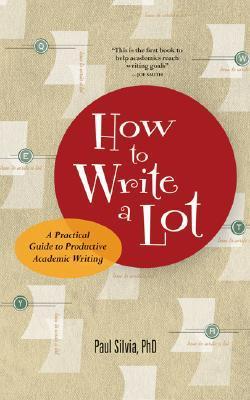What do you think?
Rate this book


149 pages, Paperback
First published January 15, 2007
“The goal of text generation is to throw confused, wide-eyed words on a page; the goal of text revision is to scrub the words clean so that they sound nice and can go out in public.� -Silvia, 2019Silvia’s goal is to get you, reader/writer, to Write a Lot. How? By acknowledging and gently dismissing our stupid, weak excuses for not writing—“I have writer’s block� and “I’m waiting for a vacation, my own space, inspiration� —and creating an iron-clad, respectable writing schedule. That’s it.